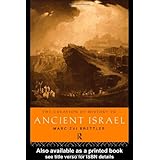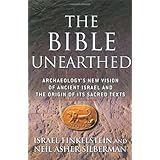
Average Reviews:

(More customer reviews)George E. Mendenhall has been described by eminent students of the Bible as one of the most creative American scholars of the ancient Near East in the twentieth century. Yet his fundamental work is largely unknown outside the guild of professional historians, philologists, and archaeologists. Now a comprehensive account of his reconstruction of the history of ancient Israel is available in a beautifully edited, attractively produced form. It can be understood and appreciated even by those who haven't mastered the technical tools of the professional scholar.
His pre-eminent interest, studied over a period of some six decades, has been the origins of ancient Israel. In Mendenhall's view, it is in Israel's origins that we find the essential clues to the interpretation of all subsequent Israelite history-including the appearance of Jesus of Nazareth and the early Christian Church some 1200 years after the time of Moses. A brief review such as this cannot hope to do justice to the enormous wealth of material in this superb book. I will attempt only a sketchy summary of each chapter.
Introduction
First he posits several illuminating general principles for understanding the phenomenon of religion, which are applied throughout the following chapters to Israel's particular historical phases.
Abraham to Moses
Then Mendenhall surveys the later part of the Bronze Age (2500-1200 B.C.) in the Eastern Mediterranean, covering the rise and fall of empires. He also characterizes (the main thrust of the chapter) the emergence, from at least 2000 B.C. onward, of numerous groups of "Apiru"--people who altogether disavowed political loyalties. He cites linguistic reasons for associating "Apiru" with "transgressor" or "outlaw." Apiru groups, lacking any legal protection, survived via banditry, mercenary militarism, or by converting agricultural assets to movable livestock and escaping to uninhabited regions inaccessible to political authorities. The less fortunate among them were prey to enslavement as state laborers--as were thousands of Apiru in Egypt.
Moses and the Exodus
Moses' leadership of the "exodus" of a few hundred Apiru from Egypt is tied in Biblical tradition (correctly, in Mendenhall's view) to two revolutionary religious innovations: monotheism in which the defining characteristic of God ("Yahweh") is ethical concern; and the use of a new form for the mediation of this Yahwism--the Covenant, derived by analogy from the forms and functions of international suzerainty treaties in use already for a millennium.
The Twelve-Tribe Federation
Mendenhall continues his historical reconstruction to the formation in two stages of the Twelve-Tribe federation of ancient Israel, created and sustained by the Mosaic Covenant, which put into practice the seemingly exotic notion of a state-less society.
David and the Transition to Monarchy
The federation functioned for about two centuries; pressure by Philistines accelerated the decline in morale and prompted desires for the institution of a political state capable of dealing more effectively with them. Samuel himself foresaw this move as the repudiation of Yahweh and the Covenant. Mendenhall illuminates the ingenious strategy then employed by David and the pagan bureaucrats inherited from the defeated Jerusalem to construct a synthesis of Yahwism and paganism, for which he adopts the term "Yahwisticism".
The Legacy of King Solomon
With King Solomon the "re-paganization of Israel" reached new heights. Mendenhall relates how Solomon's building program--involving the imposition of the corvée labor from which the Apiru slaves had escaped with Moses!--provided a new Phoenician Temple for the theologians and a swell Hittite palace for the king. "Yahweh," once the repudiator of coercion, had become merely the new "Baal," the Bronze Age hypostasis of state legitimacy and power. Mendenhall limns the intricate, unscrupulous struggles among Solomon's successors, and correlates the poetic oracles of Hosea and Amos to the ongoing upheavals of state, bringing into relief their invocation of the old covenantal elements.
Josiah Reforms the Imperial Religion
Mendenhall next turns to the fate of the kingdom of Judah and the biblical literature catalyzed by its history. He presents the historical preparation for Josiah and the latter's reforms. He also offers insights into the perverse consequences of the failure of Sennacherib's siege of Jerusalem during Hezekiah's reign (the unwarranted confidence that Yahweh's highest priority was the protection of Jerusalem and its Temple).
Destruction and Exile: The Creative Reform of Yahwism
The destruction of Jerusalem predicted by Jeremiah (and Ezekiel) was a catastrophe for Israel-as-Davidic-Dynasty and produced enormous suffering for countless hapless individuals. Meditations on it by some of the greatest religious geniuses of history are enshrined in various Biblical writings, especially Jeremiah and Ezekiel; Job (the book is worth having for this section alone); and "Second Isaiah." But the universalizing re-expression of Israel's covenant faith by these writers was just one response to the Exile. With the return of the exiles to Palestine under the Persian Cyrus, Ezra and Nehemiah wrote another new chapter in the evolution of Yahwism.
Jesus and the New Testament Reformation
Reading the New Testament in the light of the Old Testament makes it clear that Jesus' message hearkens back to the Covenant faith and the inspired re-expressions and adaptations of it by the great prophets. In a word, it was a creative reformation movement within the tradition of Israel's faith. Mendenhall throws a flood of light on "the Kingdom of God," "Messiah," "Law," and on "covenant" itself as it reappears in the Christian Eucharist.
Summary
This magnificent book by one of the towering figures in Biblical scholarship throws an arresting new light on the universal significance of the ancient ethical-religious vision of Moses and pre-monarchic Israel. It shows how, despite the ever-changing vicissitudes of Israel's history, this vision reappears, creatively readapted, in the prophetic legacy, in the Exile, in Jesus and the early Church. It is well worth having just for the fascinating word-studies to be found throughout the text. No one who takes its insights seriously can look at either the Bible or the surviving religious institutions in the same way. I believe it should be read and deeply pondered by all who are committed to the life of faith.
Click Here to see more reviews about: Ancient Israel's Faith and History: An Introduction to the Bible in Context
The author's magisterial survey leaves no scholarly stone unturned and no discipline disregarded. Findings from anthropology, archaeology, linguistics, historical analysis and social theory are all combined to paint a complete picture of Ancient Israel - a picture that is detailed and nuanced, yet presented in an accessible style. While careful not to move beyond the comprehensive evidence he has assimilated, the author does not shy from providing an account of the theological dimensions of both of Israel's history and the beginnings of the Christian faith.







